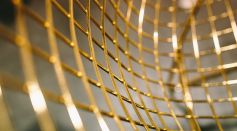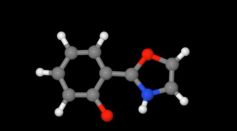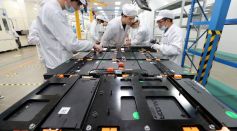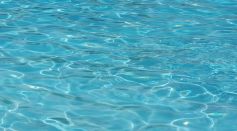CHEMISTRY

Calcium Imide: Catalyst To Extract Hydrogen Fuel From Ammonia; Step Towards Efficient Green Energy Harvest

Gold Nanoparticle Behavior at the Edge of Graphene Sheets Sparks Major Implications For Quantum Devices

Researchers Discover New AIEE Aromatic Molecule, Promises Applications in Sensing and Medicine

Rare-Earth Element Terbium Used in Cellphones May Now Be Easily Detected With Newly Developed Protein Equipped Sensor

Ultraflat Biphenylene Carbon Sheet Set to Revolutionize Electronics

Electronic Vehicles Powered by Rechargeable Batteries Can Travel Farther Without Recharge Storing 6x More Electric Charge

Water Properties Observed for the First Time; Findings Present Never-Before-Seen Quantum Tug of Hydrogen Bonds
Biofuel Extracted from Hazelnut Shells Show Potential as Renewable Energy Source

Renewable Energy: How Green Hydrogen Will Bridge The Gap for Energy Transition
Research Brings New Technique That Locates, Monitors Individual Atoms in Nanoparticles While Moving

New Discovery on Plastics Could Pave the Way for Better Products, Batteries, Screens

Ion Dynamics in Phosphate Glass During Hydration; Silicophosphate Potential Solution to Bone and Muscle Disorders
Amalgamation of Two Metals Form Nanocrystals Through an 'Intuitive' Technique
Famed Stonehenge Megaliths Durabiility, Resistance to Weathering Finally Explained in Geological Study
Most Popular

Starlink Satellite Explodes in Orbit; SpaceX Confirms It'll Re-Enter Earth

Aurora Phenomenon: How Geomagnetic Storms and Space Weather Are Lighting Up the World

Ocean Warming Explained: Why Climate Science Shows Sea Temperature Rise Is Speeding Up

How Wildfires Start, Spread, and Ignite: Understanding the Causes and Fire Behavior Clearly




